Bicycles, a widely encouraged and sustainable means of commuting, come with their own set of detriments. The spiking user interest in this two-wheeled veteran and the inevitable surge in its demand in the market create a pathway for an issue that one frequently turns a blind eye to: a heap of worn out and discarded bicycle parts. Israel-based product design brand TOOB translates this hurdle into an opportunity for a series of utilitarian accessories such as keychains, straps, elastic bands amongst other designs–hand-made using upcycled bicycle innertubes collected from Tel Aviv's local bicycle workshops. “Just like the bicycle itself, we try to keep a minimalist approach to our products while not compromising on utility and aesthetic, and we're constantly thinking of new and creative ways to reuse the innertube,” says product designer and creator of TOOB, Roy Sherizly.
When living in a dense city, cycling is arguably one of the most enjoyable ways to get around town, becoming a link between the user and the street, the noise and the rhythms that animate the city, all the while embodying a sense of liberation that only a small faction of automobile designs do. The idea behind TOOB was planted when the designers visited a local bike shop for a routine flat tire repair. After having the flat fixed, their attention was caught by a pile of punctured innertubes just waiting to be discarded at the end of the day, supposed garbage that they knew could contribute to something useful. “Besides being a fun, quick and clean mode of transportation, we really admire the bicycle's unique aesthetic which comes from its timeless design and simple engineering,” shares Roy. “We aim to keep our designs as minimal as possible while retaining a high level of utility,” he adds.
TOOB is a journey of inquisition, seeking and evolving ways to repurpose discarded innertubes that are on their way to landfills and revive them into something purposive again, their aesthetic drawing influence from the design principles of their provenance – the bicycles. “Our products are all things that we want to use on a daily basis and which usually come from ideas we have while riding our bikes,” the designer explains. The concept of TOOB keychains ensued from the constant need of locking bikes around town. The minimal design aims for a quick way of accessing the keys, eliminating the fuss around pockets or bags. With nominal hardware, one innertube can be turned into a handful of keychains. Meanwhile, TOOB straps take advantage of the innertube's stretchable properties to secure the gear to a bag or rack for transportation.
Expanding their lives, the ‘useless’ innertubes are inspected, cleaned, and hand cut, giving them a new purpose to serve instead of dumping them away in already swarmed landfills—a necessary reminder that small damages do not render a material valueless. TOOB refrains from considering their products sustainable because rubber is a material that inevitably degrades and is very hard to recycle. But concepts like these innertube accessories, albeit failing to do away with synthetic rubber, result in a substantial increase in the material’s life and a proportional delay in its disposal, posing as a reasonable substitute for the future sustainable alternatives.






 Sign in with email
Sign in with email


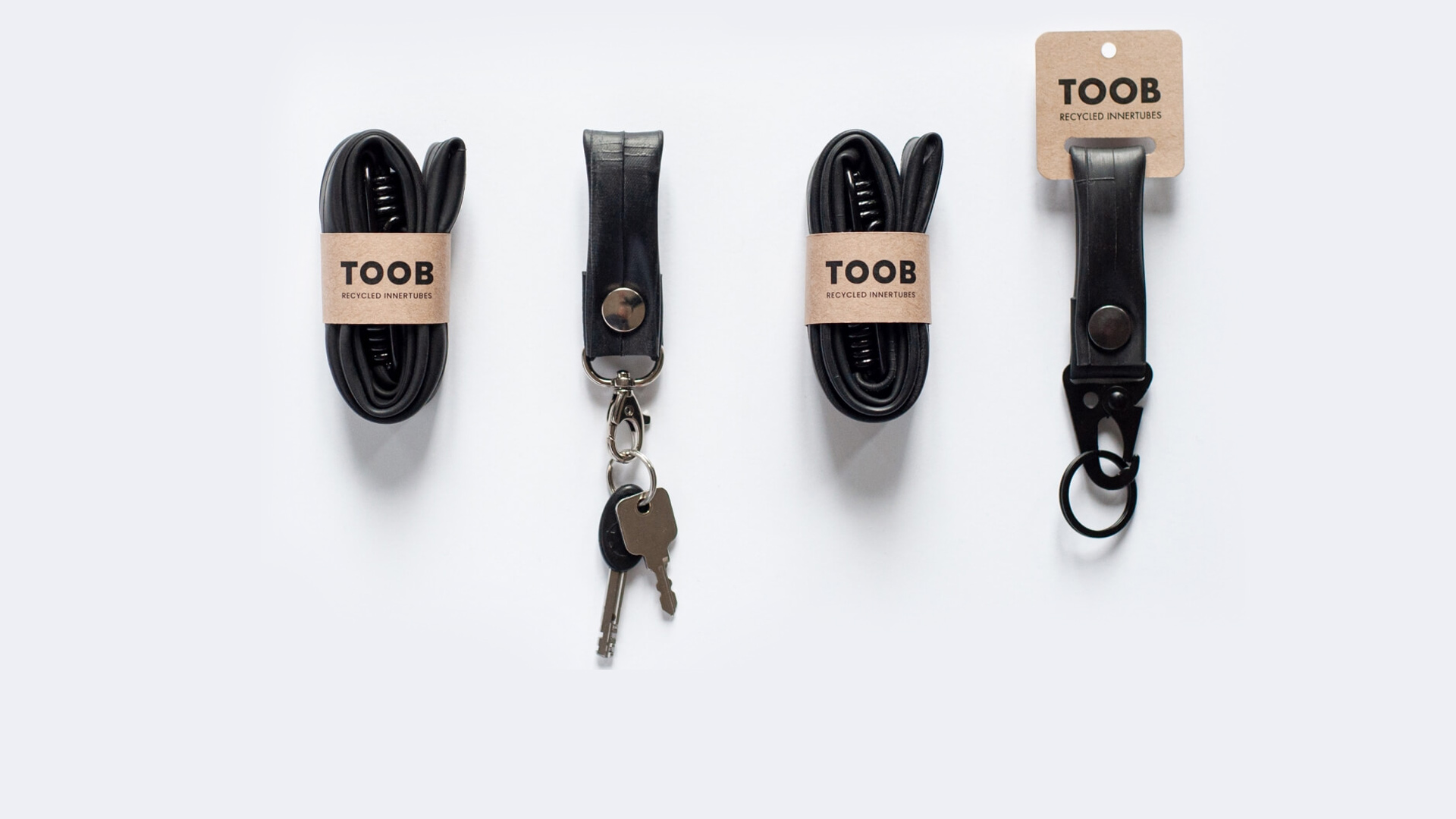
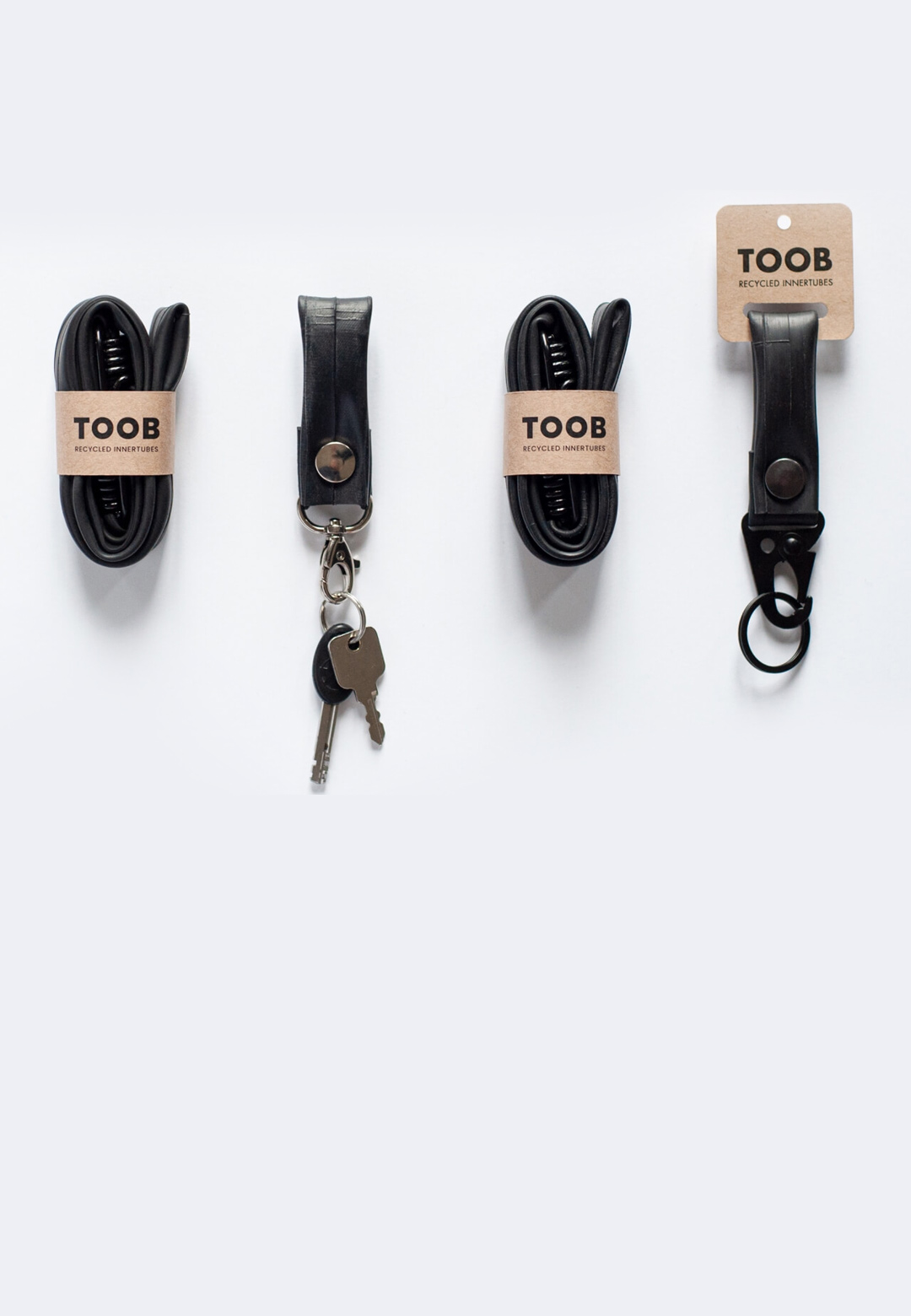
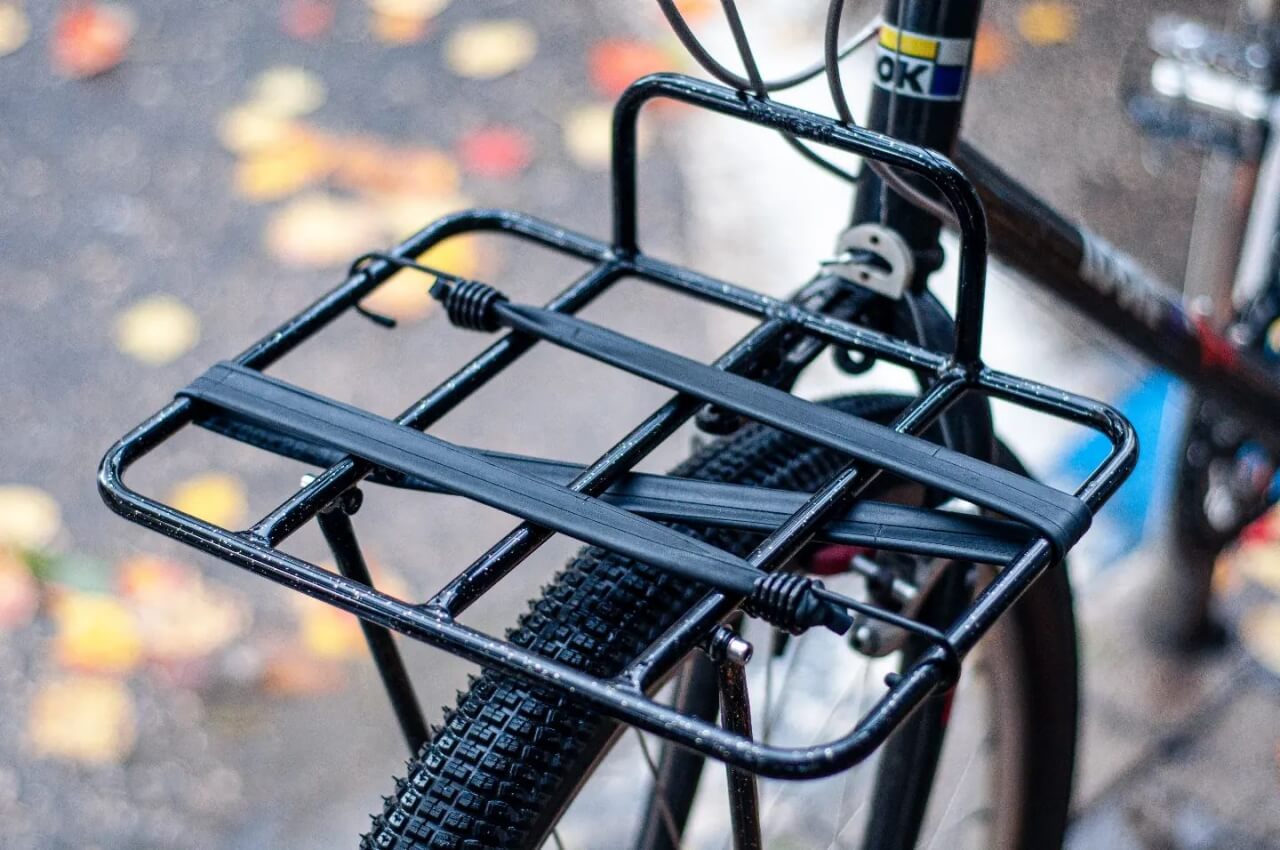
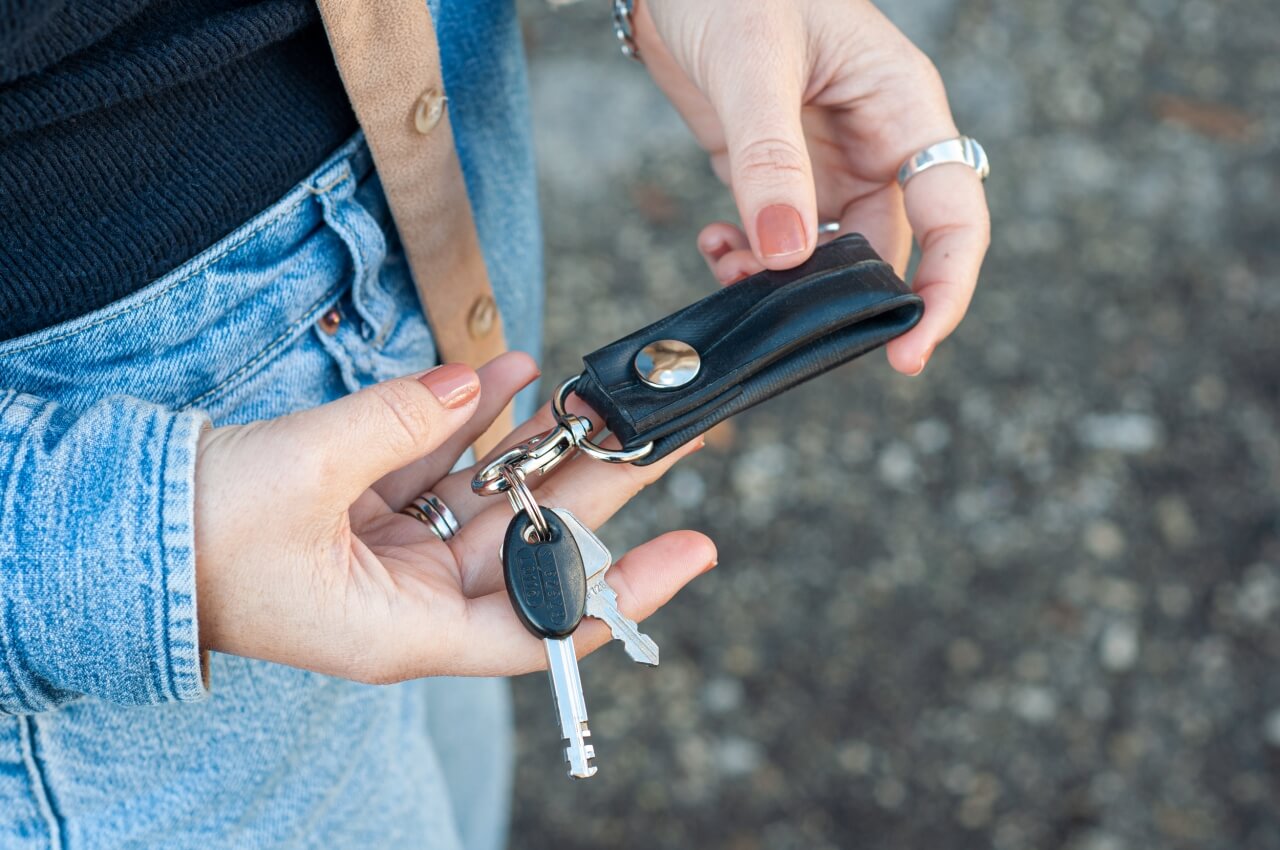
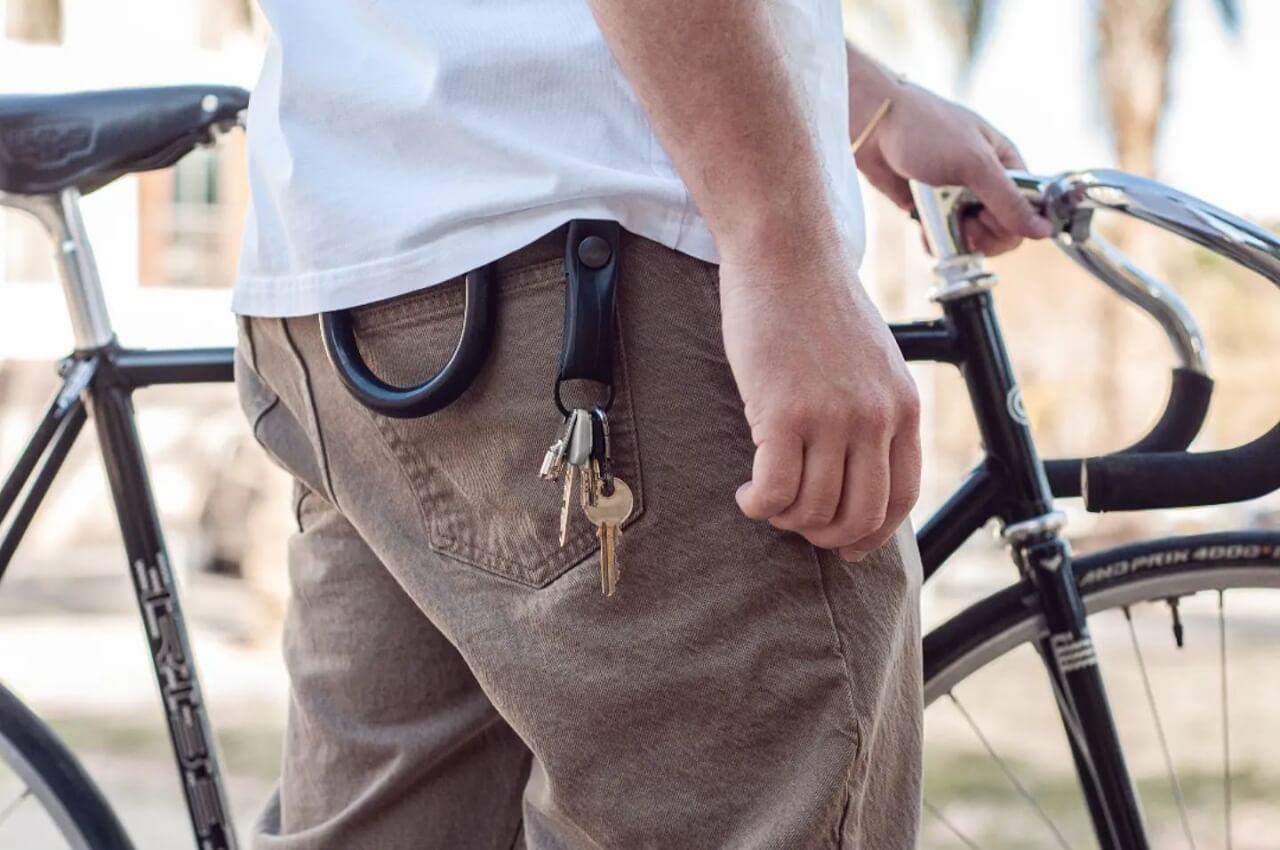
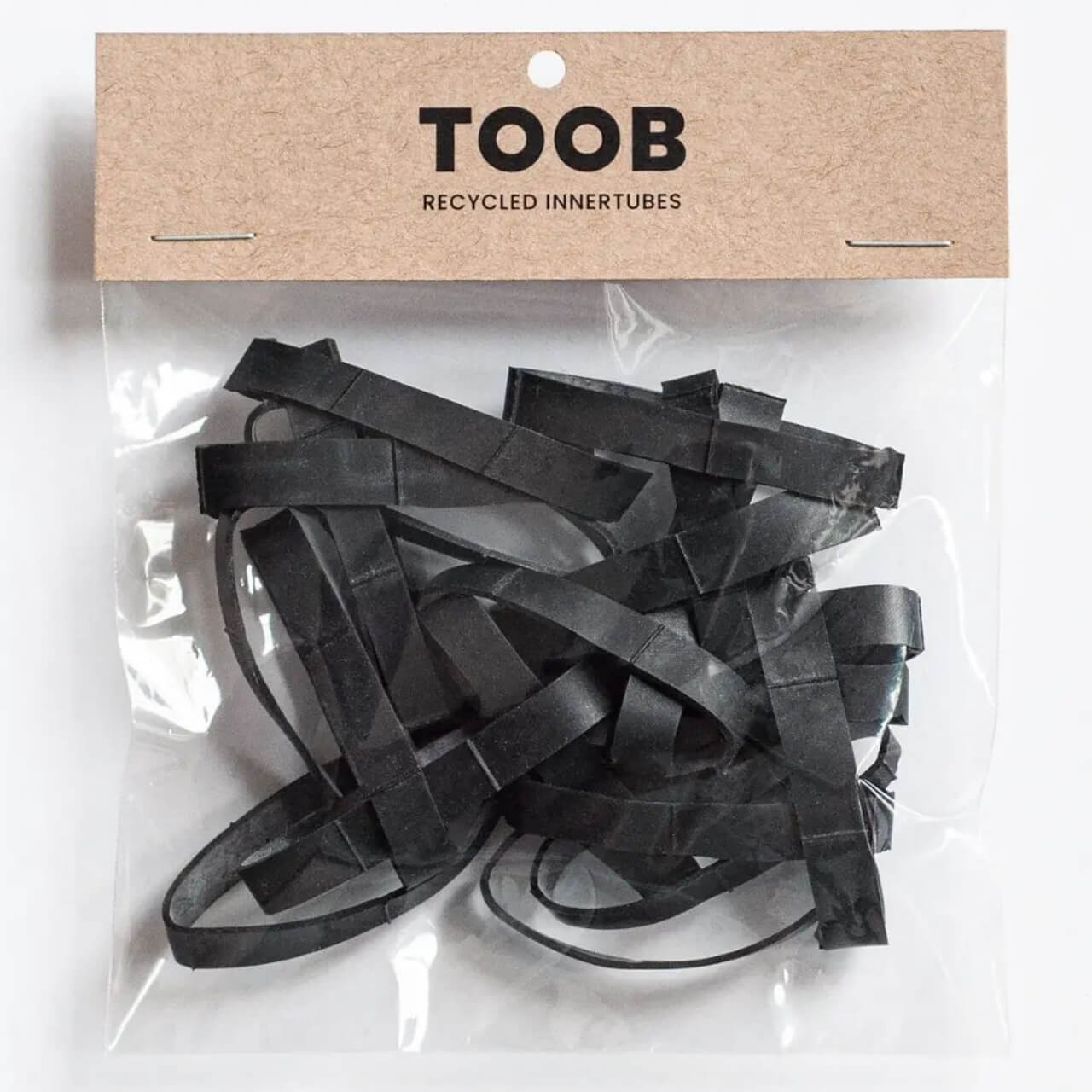
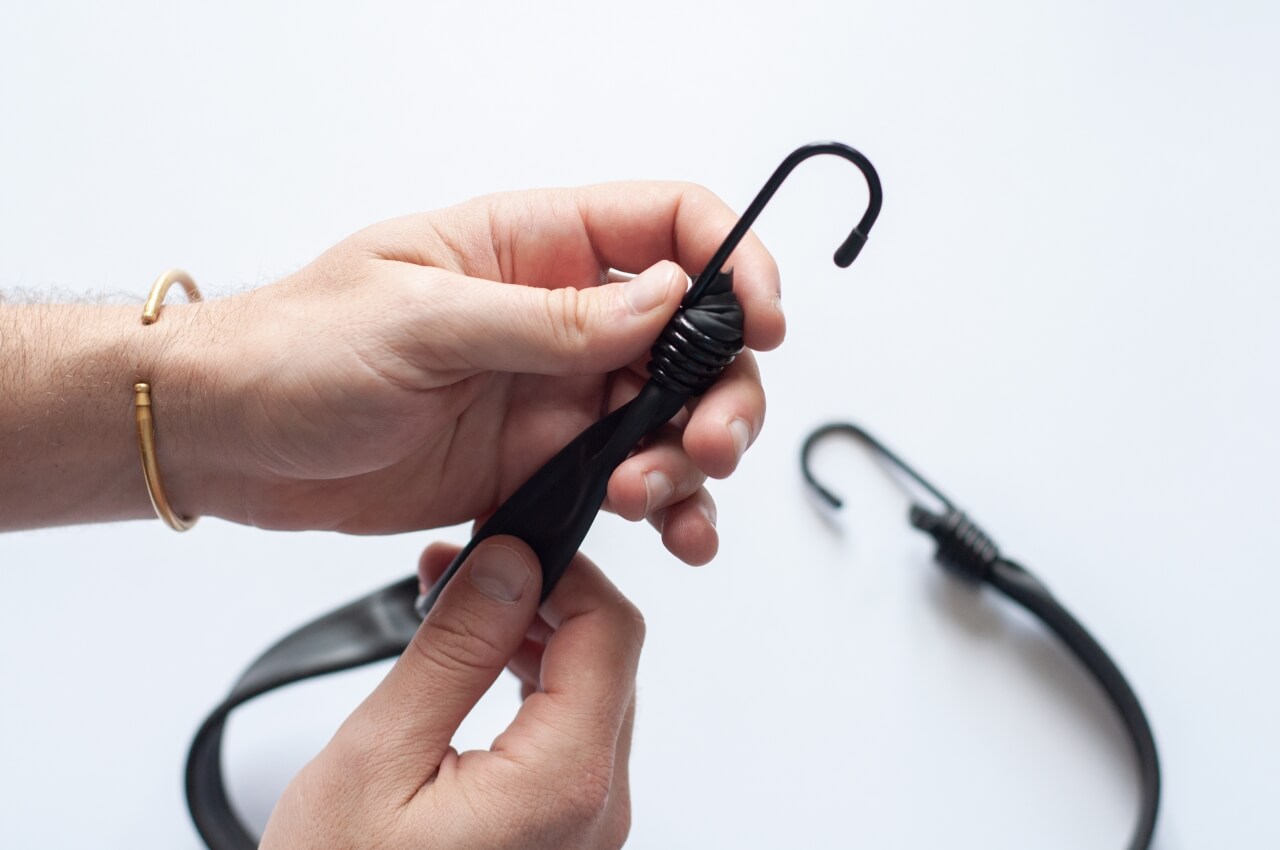
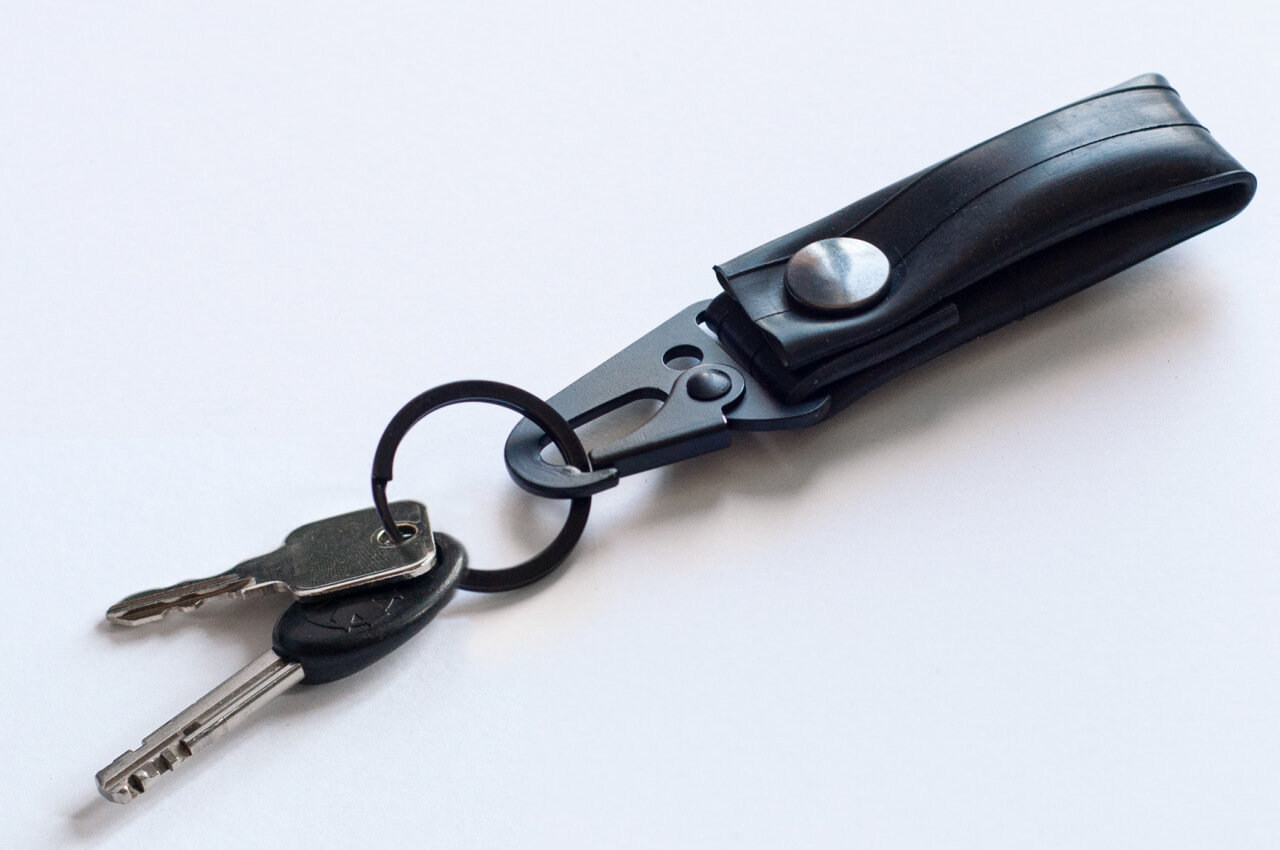






What do you think?